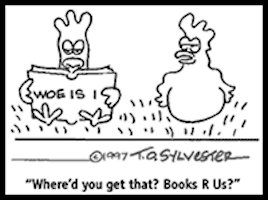Q: In a YouTube clip I’ve seen, a pianist at a hotel lounge says he likes to “play to guests.” Is it “play to” or “play for”? Wouldn’t “play to” suggest currying favor with the guests, as in “play to the gallery”?
A: The verb “play” is especially playful. You can “play” tennis, a violin, the innocent, Lady Macbeth, a sonata, the ponies or a slot machine, a CD, your queen at chess or cards, and so on.
Things get even more playful when “play” is part of a phrasal verb, a multi-word verb that’s treated as a single unit with a meaning that can stray far from the senses of the verb itself.
You can “play with” your food, “play up” or “play down” an illness, “play on” an opponent’s weak point, “play around” sexually, “play up to” your boss, “play along” with a con artist, “play at” a boring task, and so on.
The phrasal verb you mention, “play to,” has two meanings, according to the Merriam-Webster Online Dictionary:
(1) “To behave or perform in a particular way for (someone or something) in order to get approval or attention … He didn’t mean what he was saying. He was just playing to the crowd.”
(2) “To make use of (something) … a film that plays to stereotypes of housewives.”
As for your question, we see nothing wrong with a pianist’s saying he likes to “play to guests.” In this case, “to” is a simple preposition pointing to the pianist’s audience, not part of a phrasal verb.
But we wouldn’t use the verb “play” with the preposition “to” if we felt a reader or listener might think we were using the phrasal verb. For example, we wouldn’t say the pianist “plays to the guests,” since it sounds too much like “plays to the crowd” or “plays to the gallery”—that is, plays up to the guests (the meaning of sense #1 above).
We should note here that “play for” is more common than “play to,” according to our recent searches of newspaper, magazine, and book databases. “Played for,” for instance, was more than twice as popular as “played to” in Google’s Ngram viewer, which compares phrases in digitized books.
As for the etymology, the verb “play” had many of its modern meanings when it showed up as plægian in Old English: to do something for fun, to take part in a game or sport, to perform on a musical instrument, and to play with words—that is, to pun.
The earliest example in the Oxford English Dictionary of “play” used in the punning sense also includes one of the earliest puns in the English language. The citation describes Pope Gregory I’s reaction on seeing a group of Angle children from Britain for sale in a Roman slave market:
“Ða gyt he ahsode hwæt heora cyning haten wære: & him mon ondswarade ond cwæð, þætte he Æll haten wære. Ond þa plegode he mid his wordum to þæm noman & cwæð: Alleluia, þæt gedafenað, þætte Godes lof usses scyppendes in þæm dælum sungen sy.”
(“He asked moreover what their king was called; the reply came that he was called Ælle. And then he played with his words on the name, saying: Alleluia, it is fitting that praise of God our Creator should be sung in those places.’’)
The pun refers to Ælle, king of the Anglian kingdom of Deira in what is now northern England. We restored the ellipses in the citation, which comes from an anonymous early Old English translation of Historia Ecclesiastica Gentis Anglorum, a Latin church history written in the eighth century by the Anglo-Saxon monk Bede.
Earlier in the passage, the Pope had asked where the children were from. When told “þæt heo Ongle nemde wæron” (“that they were named Angles”), he punned “þæt heo engla æfenerfeweardas in heofonum sy” (“that they should be joint heirs with the angels in heaven”). A third pun in Bede’s Latin doesn’t work in Old English, so we’ll skip it.
Help support the Grammarphobia Blog with your donation.
And check out our books about the English language.
